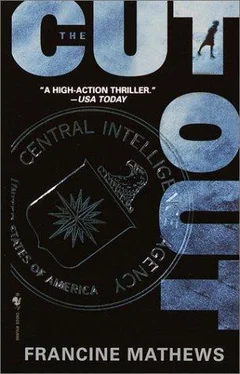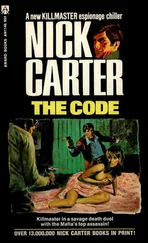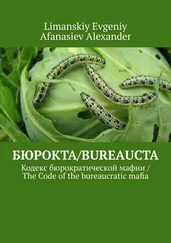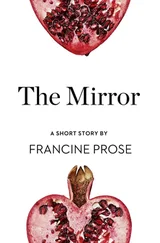Cuddy tossed her the DO report.
“We don't know diddly about this guy, Mad Dog. He's untested. What if he's one of Eric's recruits?”
He was closer to penetrating 30 April than ever before.
“I wouldn't be surprised if he was,” she replied.
“Then think about that. The source would be tainted, wouldn't he?”
“Tainted,” she repeated. “Because he knew Eric?”
“For Christ's sake, Carrie! As of this morning Eric's whole career is suspect. We don't know when he betrayed us or how completely. We don't know what's true and what's crap. Every report, every recruitment they're compromised. And that goes for everybody Eric ever handled.”
“We could find out who recruited this one,” she shot back, tapping the TD.
“The Hungarian desk could tell us.”
“If I called in some favors, maybe. But I'm not sure that'd be a good idea.”
“The TD is barely six months old,” she argued. “This source is still out there, Cud still on our payroll.”
“And you think he could lead us to Eric and, by extension, Payne. Forget it. It's a nonstarter. Don't let Eric screw you again, Carrie, just because you want to believe.”
There was a short and painful silence.
“I think you ought to see something,” Cuddy said. He walked out of the office.
After a second, she followed.
He led her to a computer terminal that Scottie kept reserved for one use only the terrorism database, DESIST.
It was the pride of the CTC, a compilation of over a thousand terrorist groups and organizations. Raw data phone numbers, bank accounts, airline manifests, business cards could be fed into the computer and analyzed for patterns too slight and seemingly random to attract attention. When DESIST went to work, the most amazing connections between utter strangers appeared as if by magic. DESIST could tell you when one man in Belgrade carried the address of another in Zurich, or whose phone number rang in which safe house. It could match passports to false pictures, bring up a myriad of aliases, connect the dots between terrorist groups that the world believed to be enemies: members of the IRA who were friendly with Hizballah; bankers who laundered money for both the Kurdish PKK and the Algerian Jihad. An entire world of uneasy relationships existed in the DESIST data banks, a labyrinth of obligations and mortal mistrust.
“Sit down,” Cuddy said, “and plug in Eric's alias.”
“Which one?” she asked.
He raised an eyebrow.
“I only knew one.”
“In Budapest, he was using "Michael O'Shaughnessy."”
“Try it.”
“But you know there are no Americans listed in this database,” she protested.
“It's illegal for the CIA to track U.S. citizens.” Cuddy shrugged. “Does a dead man have citizenship? Try it, Mad Dog.”
She typed in the name. The computer thought about it for a split second. And then it spat out two words, Mahmoud Sharif, and a phone number. She wrote down the number and plugged it into the database. Nothing. She glanced at Cuddy.
“Try just "Sharif".”
Obediently, she ran the name through the system. An extensive file reeled out. “"Hizballah bomb maker,"” she read, “ "legally resident in Berlin."”
“Sharif is believed responsible for that series of bombs the BKA found last March,” Cuddy told her. The BKA — the Bundesknminalamt — was the German equivalent of the FBI. “He'd wired them into electronics — television sets, stereo components, laptop computers — and stored them in an abandoned apartment in Frankfurt.”
“I remember that,” Caroline said. The BKA had confiscated seven of the bombs safely; an eighth had exploded in the act of being defused. Two men had died.
“Why didn't he go down for it?”
“Sympathetic judge. Circumstantial evidence.”
“I see.”
“German Intelligence is convinced Sharif made twelve bombs. So where are the other four?”
“Underneath the Brandenburg?”
Cuddy shrugged.
“Ask Sharif, he'll say he knows nothing about electronics. He's just a carpenter with a German wife and a kid named Moammar.”
“Aren't they all. I guess the phone number wasn't his, or it'd be in the file.”
“The phone is disconnected. I walked down to the Exxon station on Chain Bridge Road twenty minutes ago and dialed it.”
“So if it's not Sharif's .. .”
“It's Michael O'Shaughnessy's. Got it in one.” He pulled up a chair next to her.
“Last August, Sharif was shaken down by Israeli airport security when he tried to fly from Frankfurt to Malta. They pulled his address book, Xeroxed it, and sent the contents here. Somebody — a Career Trainee, probably, who never heard of Michael O'Shaughnessy and couldn't have known it was an Agency alias — entered the name into the database.”
“We don't know how old this information is,” Caroline hedged. “People keep numbers in their black books for years. Maybe Eric made legitimate contact with Sharif years ago. Maybe he targeted him for recruitment.”
“It was a datebook, Caroline. Sharif bought it last January. Nothing in there is less than current. He talked to Eric sometime this year. And that disconnected phone was in Berlin.”
“You think they planned this,” she said. “That Eric was in Berlin and recruited Sharif to build the device that took out the Gate. Why, Cuddy? Why would a Palestinian do anything for a neo-Nazi like Krucevic?”
“Who said it was Krucevic? All I saw was Eric in a helicopter. Anyone could have been flying it, Caroline. You know that.”
“But, Cuddy...”
“It could have been anybody,” he interrupted.
“We won't know who snatched the Veep until they make contact. And once they do whether it's Osama bin Laden or Hizballah or, yes, 30 April the FBI will be in charge of the investigation.”
“You just want this whole thing to go away, don't you?” Her voice was brittle with frustration.
“Of course!” he burst out. “Isn't that what any sane person would want? Or have you had the time of your life today, Carrie, hiding in the women's bathroom?”
“I'm sorry,” she said inadequately.
“Don't hope for good things, Mad Dog. They're just not thick on the ground.”
“Mrs. Payne.”
A harsh voice, faintly mocking. Sophie turned her hooded head and groped vainly for a face. A piercing light penetrated the cloth masking her eyes; nothing else did.
“Help the lady out, Michael.”
A firm pair of hands under her armpits, and she was hoisted free of the box in which she had traveled now for unreckoned hours. She groaned at the bruising pain of it; her tethered wrists, pulled obscenely behind her back, had gone numb.
The unseen Michael half thrust, half carried her along a smooth surface, probably concrete. A pathway — toward what, exactly? — cold and pitted under her stockinged feet. She was still wearing the suit she had chosen for the embassy inaugural.
It must be spattered with Nell Forsyte's blood. Sophie's throat tightened, torn between the desire to retch and the need to sob. Nell was dead. She, Sophie, was alive. That should have been comforting — but Sophie was no fool. The men who had abducted her would attempt to bargain for her life. And much as he liked and respected her, the President would never negotiate with terrorists.
The air was sharp and chill. She felt the weak sunlight fade, had a palpable sense of passing indoors. A short, stumbling flight of stairs, a stubbed toe. Her son Peter's laugh rang suddenly in her ears — infectious, still young, the faintest edge of her dead husband in its timbre. What did Peter know other fate? Was he frantically calling the White House, demanding information — leaving New Haven on an afternoon train, with just an ATM card in his pocket?
Читать дальше







![Микки Спиллейн - Death of the Too-Cute Prostitute [= Man Alone]](/books/437201/mikki-spillejn-death-of-the-too-thumb.webp)




